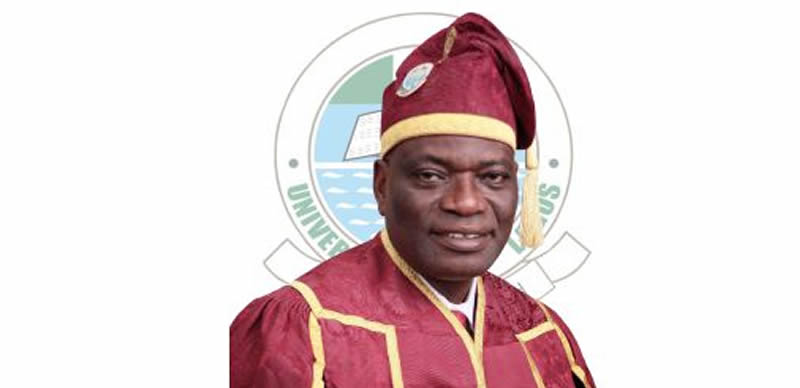At least 239 first-class graduates who took up lecturing positions at the University of Lagos exited the institution in just seven years, the immediate past Vice-Chancellor, Prof. Oluwatoyin Ogundipe, has revealed.
Ogundipe disclosed this while delivering a lecture at The PUNCH Forum on Tuesday. The event, themed “Innovative Funding of Functional Education in the Digital Age,” was held at The PUNCH Place, along the Lagos-Ibadan Expressway.
Providing statistics to illustrate the trend, the former UNILAG VC explained that the university had recruited 256 first-class graduates as academic staff between 2015 and 2022.
However, as of October 2023, only 17 were still on the payroll.
He blamed the massive departures on poor pay, unattractive working conditions, and lack of motivation in Nigeria’s university system.
“At UNILAG, we decided that those with first-class honours should be employed. What is remaining is not up to 10 per cent. All of them have gone. One day, I asked the man in charge to give me this information.
“In 2015, 86 were employed; in 2016, 82; during my time, that is, 2017 to 2022, 88 were employed. As of October 2023, only 17 were on the ground. They have gone. Very soon, in the next 10 years, you will have only females in the universities if something is not done,” Ogundipe said.
He cautioned that unless urgent reforms were introduced, universities risk being dominated by female academics within the next decade, while postgraduate programmes might increasingly admit ill-prepared candidates.
“Many of us are tired. By the time you get home, there is no light, and the Federal Government is saying they are giving us N10m to access as loans. You can see how our lives have been devalued. Can I use N10m to build a security post?
“How do you encourage them? Many of our colleagues, especially the young ones, are tired. The unfortunate thing is that two things will happen in the universities soon. Women will be the ones to occupy universities, like we have in secondary schools. Second, the calibre of people who will come for postgraduate studies will be people who are not supposed to come,” he lamented.
Highlighting the chronic underfunding of education, Ogundipe pointed out that allocations from federal and state governments have consistently stayed below 10 per cent, well short of UNESCO’s 15–26 per cent benchmark.
He proposed that lawmakers enact a law guaranteeing each first-generation university at least ₦1bn annually to tackle infrastructure decay.
He also faulted the over-reliance of universities on Internally Generated Revenue, which, in his view, should be dedicated primarily to research.
“In the period from 2015 to 2025, Nigeria’s education sector has faced tremendous fiscal restraint. Federal budget allocations, even after headline increases in absolute naira terms, have consistently remained below 10 per cent, and most years hover between 4.5 and 7.5 per cent.
“The consequences of chronic underfunding are immediate and profound: Nigeria has the highest number of out-of-school children worldwide, estimated at between 10 and 22 million. Over 60 per cent of primary education funding is absorbed by teacher salaries, often with little left for capital expenditure or innovation,” he stated.
To bridge the gap, Ogundipe called for creative funding models such as public-private partnerships, alumni endowments, philanthropic support, education bonds, diaspora investment, and technology-driven education financing.
“UNESCO positions innovative financing as a critical tool for bridging the nearly $100bn annual financing gap impeding educational attainment in low- and lower-middle-income countries.
“Innovative mechanisms for education include shared risk/reward models for infrastructure, investors repaid only if outcomes are achieved, risk capital to support EdTech and innovative schools, leveraging the Nigerian diaspora for targeted investments, debt swaps for education, education technology grants, corporate donations, and capacity-building linked to business and reputation,” he explained.
Ogundipe urged stakeholders, governments, private sector players, alumni, civil society, faith-based organisations, and donor agencies, to take greater responsibility for supporting education, stressing that investing in people and research was essential for national development.
PUNCH management staff present at the forum included the Executive Director, Business Development and Innovation, Mrs Valerie Omowunmi Tunde-Obe; Chairman, Editorial Board, Mr Obafemi Obadare; General Manager, Production, Mr Olayinka Popoola; and Manager, Advertisement, Mrs Mary Ubani.
Also in attendance were the Editor, PUNCH Digital, Mr Lekan Adetayo; Deputy Editor, The PUNCH, Mr Tana Aiyejina; Associate Editor, News, Dr Ramon Oladimeji; and Head of Training, PUNCH Media Foundation, Mr Dele Aina.







